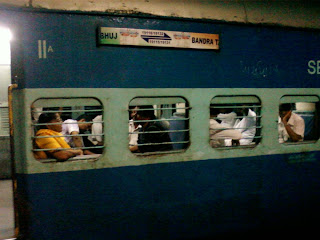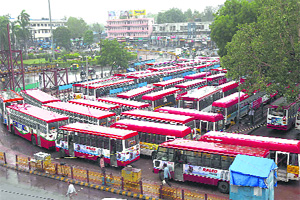SURAT: An unknown Surti wedding photographer won a gold medal in a photography competition held by All Japan Association of Photographic Society (AJAPS) for his snaps taken during the 2006 floods in the city.
Jayesh Vinjuda (32), father of two kids, who teaches traditional dodiya during Navratri to supplement his income, had never participated in any contest till September this year. "I did a lot of offbeat photography for fun, but kept my work to myself, fearing criticism. I entered this contest after much persuasion from my photographer friends and sent a series of 10 pictures from the collection of Flood Ravaged Cities," he said.
A matriculate, Vinjuda is a lensman for the last 13 years and has worked as a helper in Saiyedpura area of the city earlier.
This year, 9,140 photographers from 42 countries sent their entries and 130 photographers were selected for the final and were awarded. Eleven entries were sent from India and 10 of them were from Gujarat; six from Vadodara. A Vadodara lensman Dimple Pancholi has been awarded a special prize in the same contest.
The photograph that won the gold medal was taken at Pandole (Near Boricha Gas Agency) on Ved Road of the city in 2006.
In their letter to Vinjuda, AJAPS said that the winning works will be displayed in all the major cities of Japan during International Photographic Salon Exhibition and they can also be seen on the home page of the website. Vinjuda will receive his gold medal and certificate in April, 2012.
Jayesh Vinjuda (32), father of two kids, who teaches traditional dodiya during Navratri to supplement his income, had never participated in any contest till September this year. "I did a lot of offbeat photography for fun, but kept my work to myself, fearing criticism. I entered this contest after much persuasion from my photographer friends and sent a series of 10 pictures from the collection of Flood Ravaged Cities," he said.
A matriculate, Vinjuda is a lensman for the last 13 years and has worked as a helper in Saiyedpura area of the city earlier.
This year, 9,140 photographers from 42 countries sent their entries and 130 photographers were selected for the final and were awarded. Eleven entries were sent from India and 10 of them were from Gujarat; six from Vadodara. A Vadodara lensman Dimple Pancholi has been awarded a special prize in the same contest.
The photograph that won the gold medal was taken at Pandole (Near Boricha Gas Agency) on Ved Road of the city in 2006.
In their letter to Vinjuda, AJAPS said that the winning works will be displayed in all the major cities of Japan during International Photographic Salon Exhibition and they can also be seen on the home page of the website. Vinjuda will receive his gold medal and certificate in April, 2012.
















